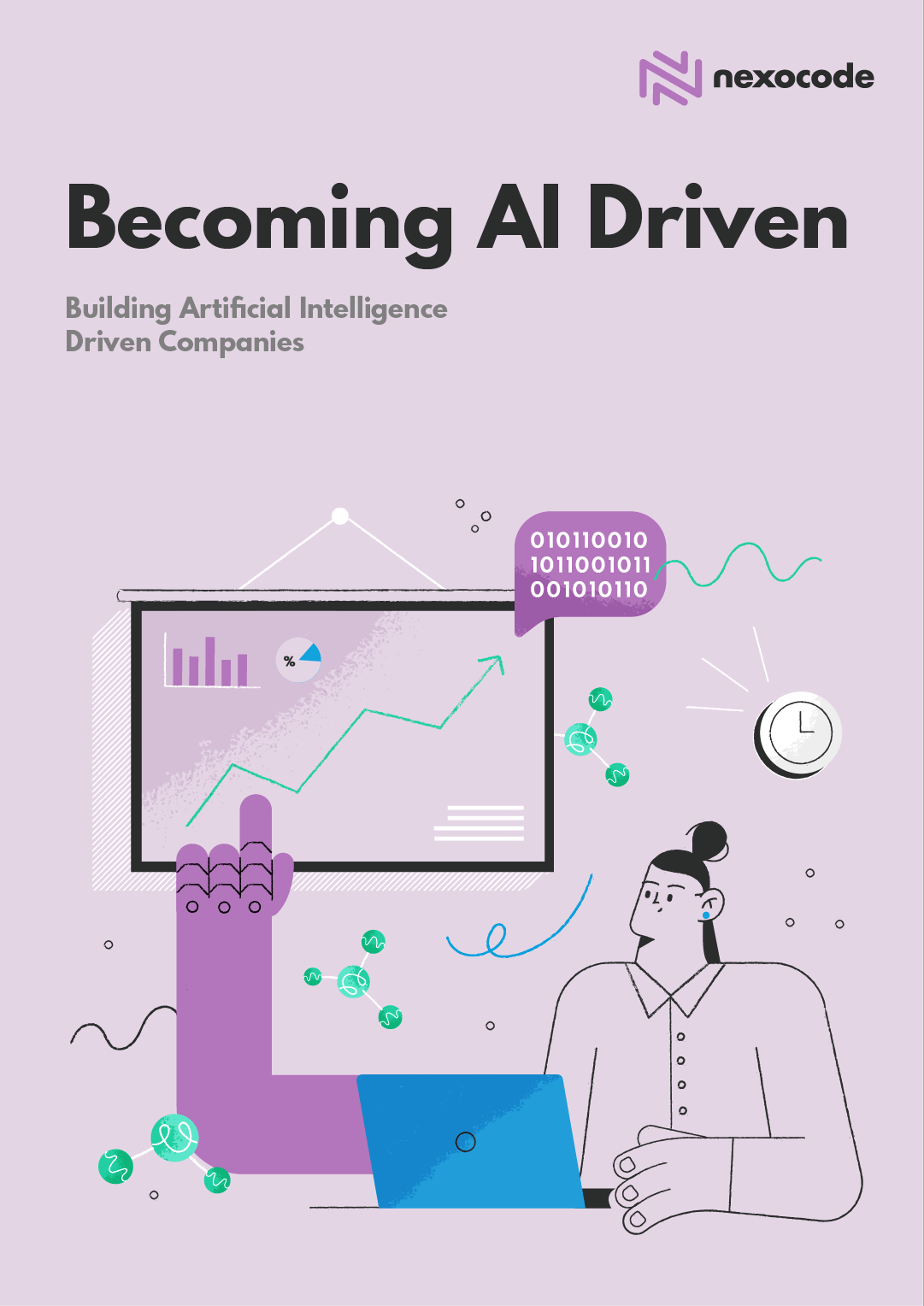AWS is one of the most popular cloud platforms on the market. It offers a wide range of benefits that can help businesses save time and money.
This blog post will discuss the five best benefits of AWS. We will also explain how each benefit of moving to aws cloud your business to grow and succeed. If you are considering making the switch to AWS, carry on reading this post.
What is AWS?
Amazon Web Services (AWS) is a cloud computing platform offered by Amazon that enables companies to host their applications, store business data, and process workloads in the cloud. AWS is a leading cloud provider thanks to its computing power, storage space, low security risks, scalability, and cost savings.
After initially launching with its web services in 2002 based upon
Amazon.com’s online retail infrastructure, AWS began offering its defining cloud computing infrastructure in 2006. The platform now supports over one million active clients from all industries, ranging from startups to global enterprises.
AWS cloud technologies enables businesses to quickly and easily gain from migrating their applications and services to the cloud. Below are the biggest AWS advantages.
Ease of Use
It’s incredibly easy to get started with the AWS cloud platform since it was designed to allow for fast, secure access, and the AWS management console presents a user-friendly interface. In just a few clicks, businesses can start using the platform and begin launching their applications and workloads.
Furthermore, data can be modified whenever and from wherever users want. This means that businesses can focus on getting the most out of their applications and workloads instead of worrying about maintaining them.
Wide Portfolio of Cloud Services
After initially being intended just to provide cloud computing and storage services, AWS has since released an extensive portfolio of different cloud services. Amazon web services include dedicated solutions for data analytics, app development, DevOps, machine learning (ML), security and governance, mobility and enterprise application integration, and Internet of Things (IoT) services, among others. AWS offers multiple storage options like the basic Amazon S3 (simple storage service), Elastic File System, EBS (Elastic Block Store), or EMR for big data processing. AWS cloud also has other services that support the end-to-end approach to the migration process (like Application Migration Service or Database Migration Service).
As well as its Infrastructure as a Service (IaaS) platform, which allows users to rent virtual computing resources, AWS also offers its Platform as a Service (PaaS) for building and operating applications in the cloud, Function as a Service (FaaS) for running on-demand services that support functions execution, plus ready-made, packaged Software as a Service (SaaS) applications.
Endless Computational Resources
This platform offers virtually limitless computing capacity with its cloud services, which is one of the most attractive benefits of AWS and the main reason for its popularity. There are essentially no bandwidth or storage limits that AWS can’t handle, and, depending on the services they use, businesses can use as much computing power as needed.
What’s more, because the AWS infrastructure is flexible, users can simply scale up their applications and workloads with additional resources if and when they are required. This is especially beneficial for businesses that require intensive computational resources but can’t afford to build their own large-scale computing infrastructure.
Cost Effective Provider
Because AWS is a pay-as-you-go service, businesses only have to pay for the services they actually use, and they can easily decrease their costs at any time by using fewer resources. As such, users don’t have to make any expensive upfront investments in order to scale up their applications or waste money on idle hardware if they need to scale down.
Additionally, since there are no contracts or termination fees with AWS, businesses can easily switch to another cloud provider if they so choose. AWS also profits from economies of scale due to its large number of customers, allowing them to pass on savings to their users.
Fully Managed Services Available
Amazon Web Services offers a range of fully managed services that allow customers to outsource the management and maintenance of certain aspects of their cloud infrastructure to AWS.
Some examples of fully managed services available on AWS include:
Amazon Elastic Container Service (ECS)
This service allows customers to deploy and manage containerized applications on AWS easily.
Amazon Elastic Kubernetes Service (EKS)
This service makes it easy to deploy and manage containerized applications using the popular Kubernetes container orchestration platform.
Amazon Relational Database Service (RDS)
This service allows customers to easily set up, operate, and scale a relational database in the cloud. It supports a variety of database engines, including MySQL, PostgreSQL, and Amazon Aurora.
Amazon DynamoDB
This is a fully managed NoSQL database service that allows customers to store, retrieve, and update data at any scale.
Amazon ElastiCache
This service provides a fully managed in-memory data store and cache that can be used to improve the performance of web applications and other workloads.
Amazon Managed Streaming for Apache Kafka (MSK)
AWS offers a fully managed service (Amazon MSK) for Apache Kafka – an open-source, distributed event store and stream-processing platform – simplifying the process of building and running production applications that use it, without having expertise in infrastructure management.
Amazon Elastic MapReduce (EMR) is a fully managed service for big data processing and analysis on the Amazon Web Services cloud. It is based on the open-source Apache Hadoop framework and allows customers to easily process large amounts of data using a variety of tools, such as Apache Spark, Apache
Hive, and Presto. Read more about tools for your project
HERE.
The AWS managed service for
Apache Spark – an open-source, unified, analytics engine – lets businesses make the most of tools for batch and large-scale data processing, querying, streaming, and ML. This enables users to create clusters quickly on-demand, easily manage them, and turn them off after the required task has finished.
AWS EMR also provides a fully managed service for
Apache Flink – an open-source, unified stream- and batch-processing framework – giving users a quick and easy way to build and run sophisticated streaming applications, with low operational costs. Moreover, fully managed Apache Flink applications can run on AWS together with
Apache Kafka to process streaming data stored there.
EMR makes it easy to set up, operate, and scale big data processing and analysis workloads on AWS. It provides a range of features and tools to help customers process, analyze, and visualize data, including support for a variety of data sources and formats, integration with other AWS services, and built-in data visualization and reporting capabilities.
EMR can be used for a wide range of big data processing and analysis tasks, including data transformation and transformation, machine learning, and real-time analytics. It is a flexible and cost-effective solution for customers who need to process and analyze large amounts of data in the cloud. Check the comparison of Hadoop, Spark and Kafka
HERE.
Amazon DocumentDB
This is a fully managed NoSQL document database service that is compatible with the MongoDB API.
These are just a few examples of the fully managed services that are available on AWS. Customers can use these services to offload the management and maintenance of certain aspects of their cloud infrastructure to AWS, freeing up time and resources to focus on other areas of their business.
AWS benefits from its experience, cloud computing market-leading position (
34% market share as of Q3 2022), and access to industry-beating features in order to serve hundreds of thousands of customers across all industries and sizes. That’s what makes it stand out even among the other top-three cloud providers, namely Microsoft Azure (21%) and Google Cloud Platform (GCP, with 11% of the market share).
Number of Services
Given its head start of four to five years over those competitors, who launched their services in 2010 and 2011, respectively, it should come as no surprise that AWS provides the most highly evolved and functional services. Not to mention the most numerous – AWS offers over 200 services, compared with 100+ from Azure and 60+ from GCP.
AWS tools cover a diverse range of AI and ML services, including DeepLens (an AI-powered character and object recognition camera) and Gluon (an open-source deep learning library). Microsoft is also investing heavily in these fields with an ML and bot service on Azure. Still, Google Cloud Platform is currently leading development thanks to TensorFlow (a popular, open-source, ML application-building software library).
Pricing
Usage of the most basic number of virtual CPUs and RAM costs about the same on AWS as Azure but is more expensive than GCP. Running instances with the largest amount of resources is cheaper on AWS than both Azure and GCP (albeit with more vCPUs), however, the latter can also produce savings as the only one to offer pay-per-second rather than pay-per-minute pricing models.
Pros and Cons
On top of the above-mentioned benefits of AWS, the huge scope of its operations across a worldwide network of data centers and availability zones often make it the most suitable cloud service provider, despite having a confusing pricing structure that makes managing costs difficult.
Azure has the advantage of taking already widely used Microsoft applications such as Office from on-premises to the cloud, but suffers from high maintenance and expertise requirements. GCP specializes in ML, big data, analytics, and others with considerable capabilities in scaling and load balancing, but its non-traditional relationship with organizations as customers is somewhat of a drawback.
Is AWS the Right Choice for Your Business Needs?
Ultimately, the choice of cloud platform depends on the individual needs and objectives of a business. Amazon Web Services stands out with its long-term presence and comprehensive set of features and services, making it a suitable choice for many businesses.
It’s worthwhile, however, to consider all the factors before making a decision to assess what AWS can offer an organization specifically. A comparison of advantages, services, and costs needs to be made to increase the likelihood of the best choice being made when selecting a cloud computing platform.
Knowing about the above-mentioned AWS cloud benefits enables any business to make an informed decision on how to use cloud technology to save time and money, improve performance, and increase agility. This cost-effective provider has a platform that is easy to use and offers a wide variety of features, unlimited resources, and fully managed services to take profit from its scalable cloud environment.
On the other hand, the top competitors in Azure and GCP are trying to catch up, as reflected in their higher growth rates. The former could be a good choice for businesses that already use Microsoft tools on-premises because they are easily integrated with its cloud platform, while the latter has impressive capabilities when it comes to machine learning and big data processing and the cheapest pricing structure for the infrastructure provided in certain cases.
All of the documentation and (video) instructions required for setting up and learning how to use its services are provided by AWS, meaning that users are just a few steps away from being up and running on their choice of the operating system, web application platform, and programming language, etc. thats why aws cloud sign up is easy. Uses of AWS become more and more popular.
If you need more assistance learning how to use the platform and taking full advantage of the benefits of AWS services,
nexocode experts would be delighted to assist you. We provide comprehensive support and dedicated services that help customers get the most out of new solutions for the cloud, including cloud migration, data strategy, architecture design, cost optimization, and training.
References
AWS Cloud
AWS Documentation
Getting Started with AWS








